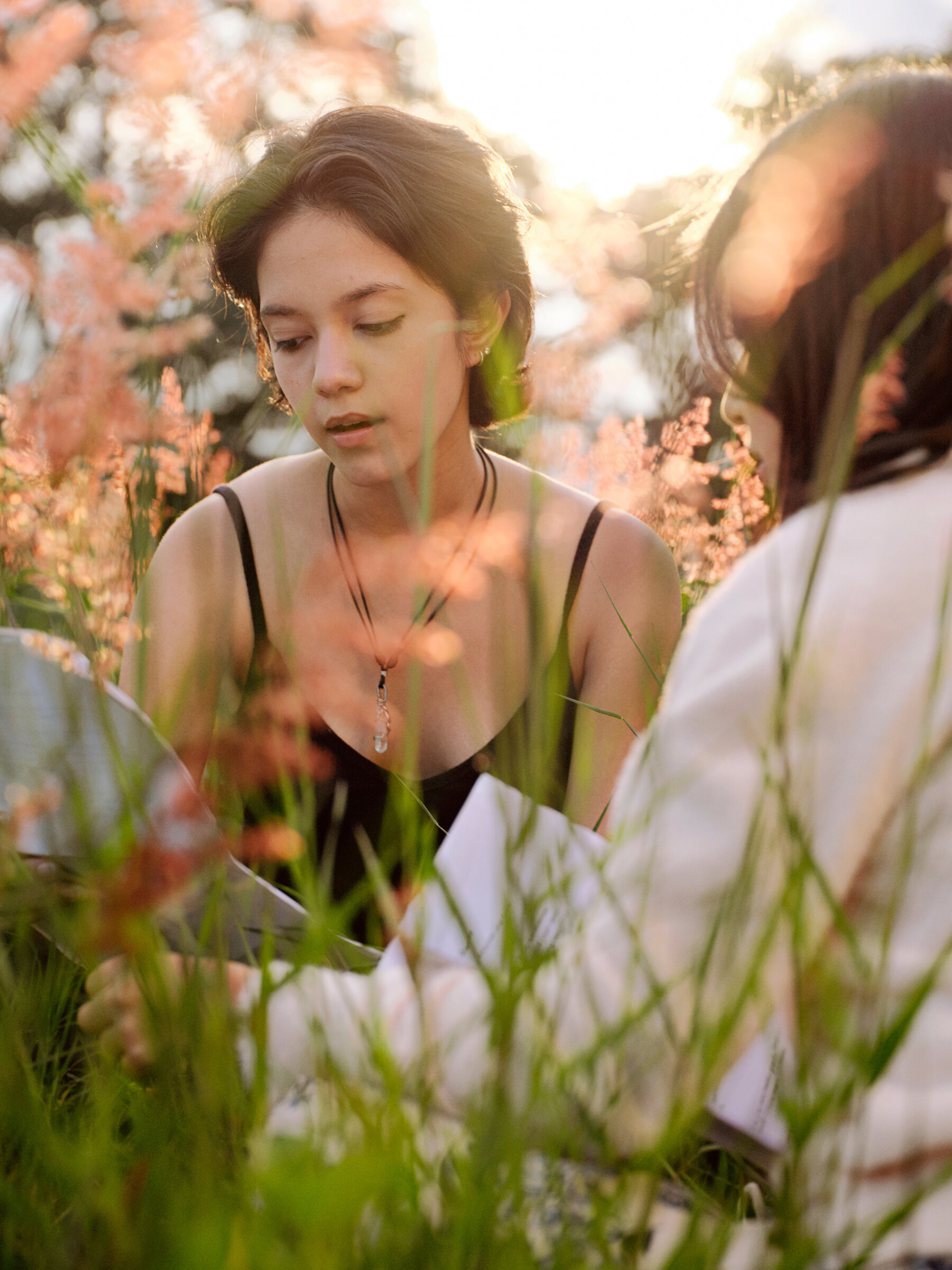
Like many dreams, the contours of what would become the film production house Desobediencia Perfecta were born at 3:00 a.m.
Vanessa Martínez, 17, and Javier Martínez (no relation), 18, two students in Guatemala City, Guatemala, stayed up talking one night in April of last year about their love of film. They had just worked together on a short film Vanessa wrote about two lesbian teens falling in love and dealing with the weight of their religious trauma, which had gotten the friends thinking about how to bring together collaborators in an inclusive space to create more art on these subjects.
Together with a mutual friend, Sebastián Aldana, 18, they founded Desobediencia Perfecta, whose mission is to explore the stories of queer and lower-middle-class Guatemalans.
The members of the collective are scattered across Guatemala, and around the world, so much of their collaboration takes place online. On the first day that the entire group was able to gather in person, at the Lux Theater in Guatemala City, the photographer Juan Brenner was there to capture the moment. “We explored the entire theater that day, all its corners. We even climbed on the roof,” said Javier. “What we did the most that day though was hug each other.” (All interviews have been translated from Spanish.)
In addition to spaces such as the Lux, a grand Art Deco theater in the historic district of Guatemala City, the young filmmakers get together at each other’s houses or in local parks to rehearse and film.
“It was very beautiful to find people that not only shared the same passions, but were also quality human beings, incredible people with mutual respect for each other,” said Sofi Lazo, 18, at left.
At the group’s core there is “this desire to not be defeated and to demonstrate that art can be made anywhere,” said Vanessa. “It doesn’t matter if there are no places to do it, because we are going to create our own places.”
Most of the collective’s 14 members were raised in conservative Catholic households, but many of them don’t practice the religion anymore. Instead, they’ve found solace and chosen family through art.



